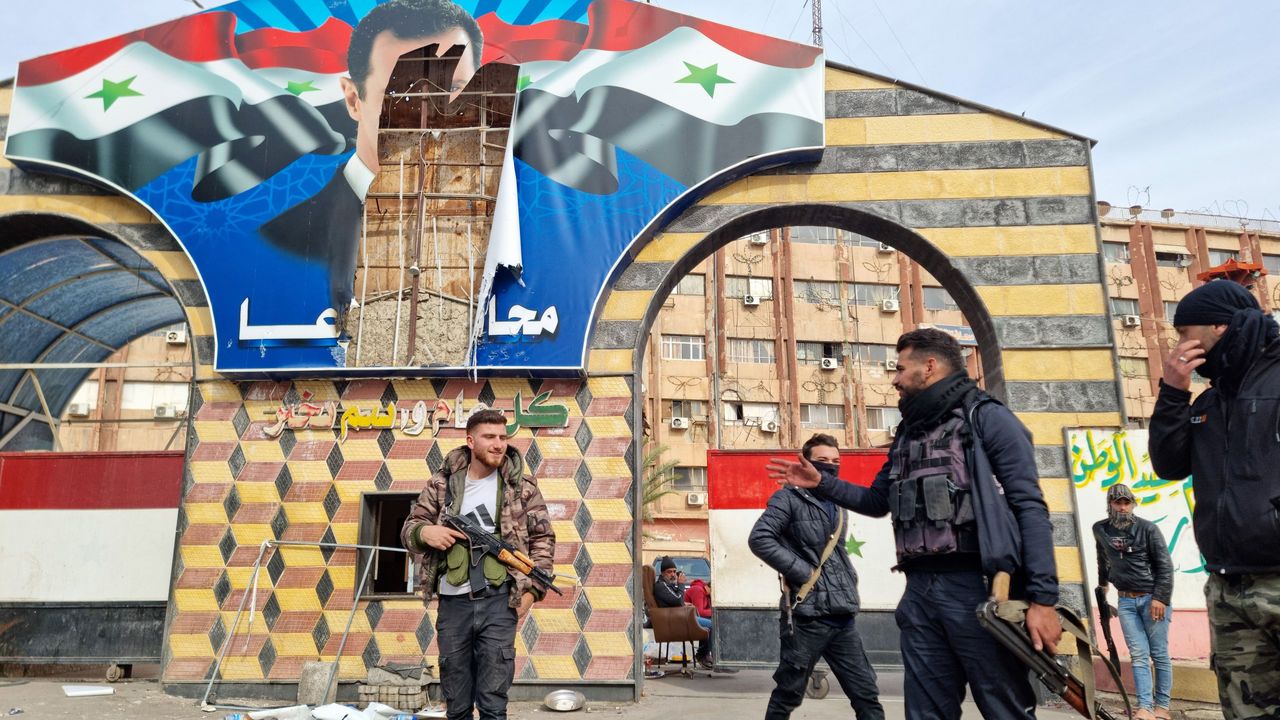- by Goma
- 01 30, 2025
-

-
-
Loading

Loading


SITTING IN AHTSHTSHTS walled compound near the Syrian city of Daraa, not far from the Jordanian border, a Syrian rebel commander recalls his men’s part in the of the capital, , a few days earlier. “We were supposed to wait until they took Homs, but when they took Hama, everyone decided to take up arms, we couldn’t stop them,” says the unassuming former trader now known by his nom de guerre, Abu Hamza.“They” refers to Hayat Tahrir al-Sham (), the that has just formed an interim government following the collapse of Bashar al-Assad’s regime. Its fighters have taken up residence at the Four Seasons hotel in central Damascus, the opulent lobby now full of bearded men carrying pistols on their waists. Abu Muhammad al-Jolani, their leader, has been meeting former officials of Mr Assad’s regime in its grand conference rooms.Abu Hamza’s tale is a reminder that Mr Jolani’s takeover was the result of a co-ordinated assault by several different groups. The initial goal, he says, was to push the regime back and lay siege to Damascus on two fronts. The offensive ended up being too successful for that. Instead his 1,200 men were among the first to saunter into the capital as Mr Assad’s army failed to put up a fight.In his previous life, the commander ran an import-export business that traded with Jordan. But for years now he has led a group of rebels in southern Syria that shared ’s opposition to Mr Assad, though not the group’s Islamism. The commander has spent much of his life fighting the dictator. His face betrays no emotion as he recalls the death of his infant son in an air strike by the regime several years ago.Over the years, groups like his have received support from Jordan and America. Abu Hamza is reticent when talking about his differences with , insisting that their fighters and his have been brothers in the struggle for a free Syria. He says his group will turn in its weapons if asked to do so by the new government: “We want to turn the page and stop this cycle of revenge,” he says. “I don’t want to fight. I consider my mission to be done.”Yet even after Mr Assad’s dramatic defeat, the country remains a patchwork of competing armed groups with differing ideas and interests, all of which will now want to play some part in the future of Syria. But for now, many are first taking a moment to celebrate. In eastern Ghouta, a suburb of Damascus that became notorious in 2013 when Mr Assad used chemical weapons against its people, grown men tossed their weapons on the ground and wailed as they embraced mothers and cousins they had not seen for more than five years. One dropped to his knees to kiss his mother’s feet.In 2018, as this suburb lay besieged by the regime, many accepted a deal that compelled them to lay down their arms in return for safe passage to rebel-held Idlib, some 350km away in north-west Syria. Now they are returning home triumphant, after taking part in the liberation of Homs, on the road between Idlib and Damascus. Thousands of these deported fighters took part in the lightning offensive against Mr Assad; his strategy came back to haunt him.The happy returnees have a hard road ahead of them. Most of Ghouta is reduced to rubble, destroyed by years of Mr Assad’s bombing of the area to punish the defiance of its residents. Many fighters may now have to swap their guns for shovels and concrete-mixers.